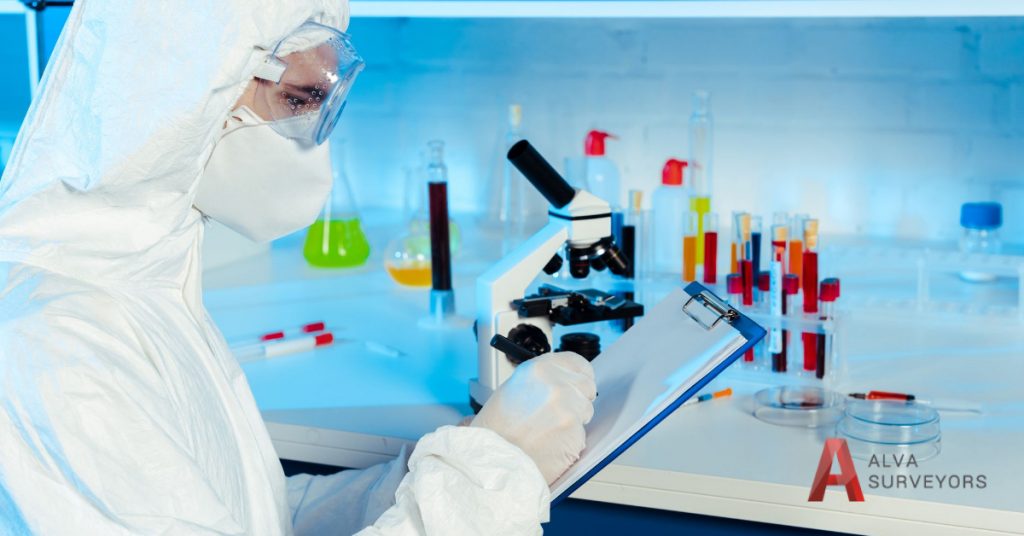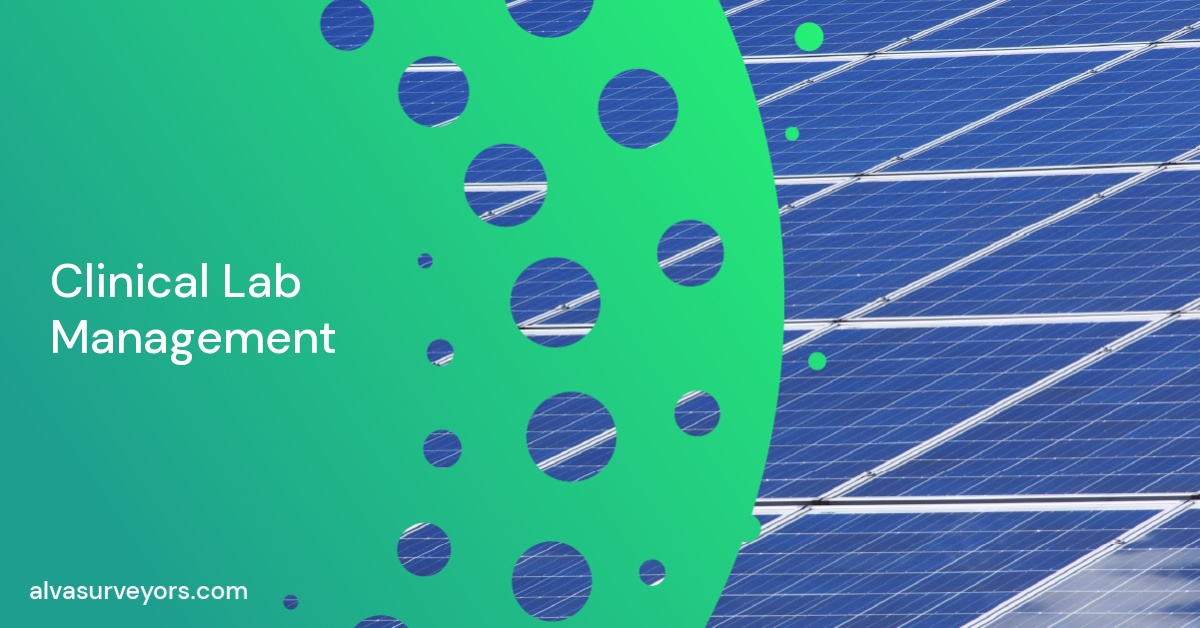Clinical lab management is arguably one of the most tasking jobs in the healthcare industry. A clinical lab typically contains a diverse team of professionals performing all types of tests and analysis, ranging from disease observation to DNA analysis.
Hundreds or sometimes thousands of these tests are performed over a period of time, and the efficiency of the laboratory, its ability to deliver accurate results, is very dependent on how well it is managed.
Good lab management in a clinical facility plays a very vital role to the recovery of patients, and to the reputation of the lab. This article provides all you need to know about running a clinical lab.
What is Clinical Lab Management?
Clinical lab management entails more than just producing test results. It involves processing and managing data, dispersing results to the appropriate person/department, managing the efficiency of daily lab activities, observing regulatory standards, purchasing lab equipment before they run out, and lab safety, among others.
The lab manager usually assumes the role of managing a clinical lab. Having a good lab manager, who observes global best practices can literally be the difference between the success or failure of the lab, and in extreme cases, the life or death of the patient.

LIMS or LIS
Thanks to the modern technological progress, some of the most difficult tasks in clinical lab management have been made so much easier to complete. Two of the most popular tools for lab management are LIMS and LIS.
LIMS stand for Laboratory Information Management Software, while LIS is an acronym for Laboratory Information System. Both of these tools are powerful software which have made managing, storing and tracking clinical lab data easier.
Additionally, both of these tools can be complemented with Electronic Laboratory Notebooks (ELNs) and Electronic Health Records (EHRs), which would make it possible for the lab to easily manage almost every possible data.
However, there is a difference between LIMS and LIS, and every laboratory would need to make a decision on which one to adopt, or a mix of both. The main difference is that LIS is more patient-centric, making it more useful within a clinical setting, while LIMS is more sample-centric, with a focus on managing the lab’s workflows. Sapio Sciences are one of the leading providers of LIMs to clinical labs.
Laboratory Safety
A very crucial determiner of success in a laboratory is managing safety, and every manager must have stringent safety to avoid disasters in the lab. Lab safety rules should cover emergencies, warning signs, hygiene, equipment handling and safety, and the use of personal protection equipment, among others.
The following are some very important lab safety rules the clinical lab manager should consider. It is by no means exhaustive.
- Safety signs and warnings: Make sure there are safety warning in all appropriate areas of the lab. Also make sure all lab employees are aware of where the emergency exits and fire alarms are located.
- “Universal Precautions”: Make sure all lab personnel follow the ‘Universal Precautions’ for handling body fluids and biohazardous materials.
- Personal Protection Equipment (PPE): All lab staff should put on personal protective equipment, especially before coming in contact with hazardous materials.
- Regulations: Follow all local and international clinical lab safety regulations.
How To Become A Good Lab Manager
A lab manager must possess certain qualities to ensure the lad is run efficiently. Here are some of them:
- Analytical skills
All lab managers would need to track spending, make budgets and monitor activities, all of which require good analytical skills.
- Managerial skill
This includes the planning and decision making in the lab. A lab manager must know how to delegate tasks and manage a workforce comprised of people with diverse talents.
- Organizational skills
A lab is a complex organization. But unlike most other organizations, a clinical lab leaves no room for even the slightest error. Therefore, a good lab manager should have an efficient system of managing workflows and the several complexities of the lab.
- Learning skill
It could be a new software that is integral to improving the lab or a new regulation, lab managers should always be willing to take on new skills and expand their knowledge. They should always be willing to take on new management, technical or analytical courses to become better managers.
- Interpersonal skills
A good lab manager should be able to get on well with all members of staff, which would include lab scientists, assistants, administrators, and technicians, among others.
Here are some vital interpersonal skills a good lab manager should have
- Communication: A good lab manager should be able to clearly communicate with all members of staff. This is especially crucial in moments when a change is introduced.
- Conflict management: A good lab manager should be able to manage conflicting priorities, departments or people.
- Negotiation: With limited staff and resources, a good manager should be able to negotiate with his staff and external suppliers to achieve the goals of the lab.
Tips For Labarotory Management
The World Health Organization created a very detailed framework for Good Clinical Laboratory Practice(GCLP). Here are some important tips for managing a clinical lab.
- Create a long term plan
All clinical labs should have a central long term focus or goal. It could be to save more lives, or to help more people, or to become the most trusted lab, or to recruit the best talents, or to carry out more life-saving research. Whatever the goal may be, it should involve every member of staff, and they should all be working towards achieving it.
- Use LIS or LIMS
No modern clinical lab can possibly manage all the myriads of data and information without using software. For clinical labs, selecting a Laboratory Information System (LIS) is crucial to processing, storing, sorting, distributing and managing patient data. However, it might be even better to select a LIS tool with additional LIMS functions, which can help to manage workflows better.
- Quality Control
To efficiently manage a clinical lab, you must establish clear quality control procedures to guarantee excellence in every area of the lab’s work.
- Motivate the Staff
The overall success of a clinical laboratory is dependent on the success of each of its staff. The ambitions and aspirations of every lab member must be in sync with that of the team, and they should be motivated to always improve and give their bests. Moreover, the lab can provide opportunities for continuous education so that all members of staff acquire new knowledge to help them improve.
- Periodic Auditing
Every lab should have a competent independent auditor go through the lab facility, research processes, methods, finance, quality control procedures, equipment, staff, and reports.
- Use high quality equipment/materials
Every equipment and material used in a clinical lab should be of the highest quality. Therefore, a lab manager should make sure they only hire the best suppliers.
- Waste Management
Due to the special types of waste from a clinical lab, it is important that every lab meet all local waste management regulation or guidance.
- Standard Operating Procedure
All labs should have clearly documented and communicated standard operating procedures that should guide every aspect of work in the lab. For example, this can include the procedure for collecting, labelling and processing blood or tissue sample from a patient, among others. Having this procedure guarantees quality and leaves little room for errors.
In conclusion, having an efficient system for clinical lab management could literally save the lives of patients, increase the productivity of staff, reduce the chance for errors or disasters, and improve the reputation of the lab. A good lab manager should have good organizational, communication, managerial, and analytical skills, while also establishing quality control, standard operating procedures and a system for waste management.







1 thought on “Clinical Lab Management”
Comments are closed.